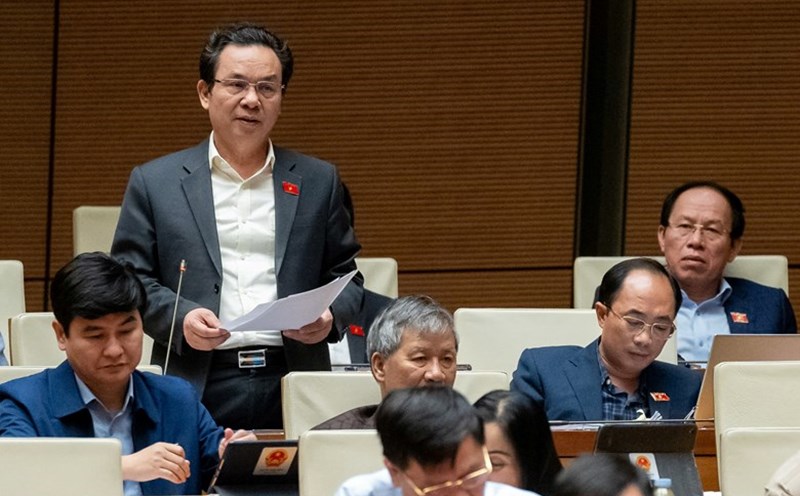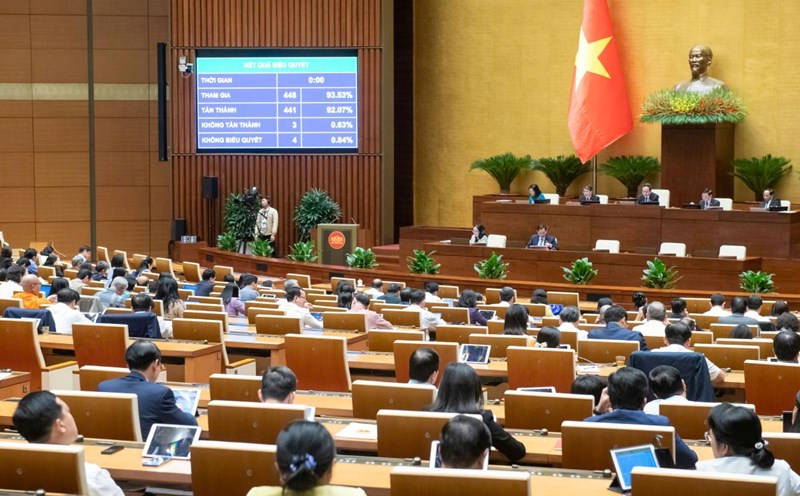On the afternoon of November 29, the National Assembly discussed in the hall the draft Law on Management and Investment of State Capital in Enterprises.
Explaining the opinions of interested delegates, Minister of Finance Nguyen Van Thang emphasized that the promulgation of the law aims to improve the efficiency of state capital investment management in enterprises.
In which the state truly plays the role of an investor, an owner with equal rights, obligations, and responsibilities with other investors in the enterprise, which is also in accordance with international practice. In addition, it also puts an end to intervening in enterprises by administrative orders or integrating state management into investment, business activities, and capital preservation of enterprises.
The Minister also mentioned the issue of separating the state management function from the capital investment function and the management and operation activities of enterprises to ensure that enterprises must operate in accordance with market principles.
Regarding the subjects of application, the Minister said that currently, the draft law stipulates that it applies to state-owned enterprises according to the provisions of the Enterprise Law, credit institutions in which the State holds more than 50% of charter capital, excluding deposit insurance and policy banks.
Some delegates proposed to add enterprises with State investment capital of 50% or less of charter capital and capital investment in other enterprises with F2 and F3 investment capital to regulate management principles with appropriate measures and levels.
The Minister of Finance said that he will accept the proposal to study, propose and report to the Prime Minister for consideration to decide to add it to the applicable subjects and prescribe management principles and contents in accordance with the capital contribution as well as the nature and scale of the enterprise's capital.
Regarding the issue of capital representatives, in this case, Minister Nguyen Van Thang said that the capital representative at the enterprise plays a very important role, deciding the business performance of the enterprise as well as the preservation and development of capital at the enterprise.
The Minister said he strongly agreed that there must be a management and evaluation mechanism associated with a remuneration regime; there must be tools for talented people.
"We have a very strict reward and evaluation mechanism. People work very hard, but if salaries and bonuses are based on a scale, we will never find talented people.
"Like that, talented people never fulfill their responsibilities. Why do other businesses in the same industry pay 50 to 100 times more, 5 times or 10 times more is common, but our capital representatives pay very low, clearly that is not acceptable," said the Minister.
According to the Minister, the same is true for assessment management. Assessment management must be very objective and transparent. That is, if a business is doing business effectively, how the effectiveness (profit, revenue) is evaluated must be very clear.
If you do well, what will your salary and bonus be? If you exceed the set profit, will your salary and bonus be increased? If you do not do well, what level is a warning and what level is a dismissal to be fair?










